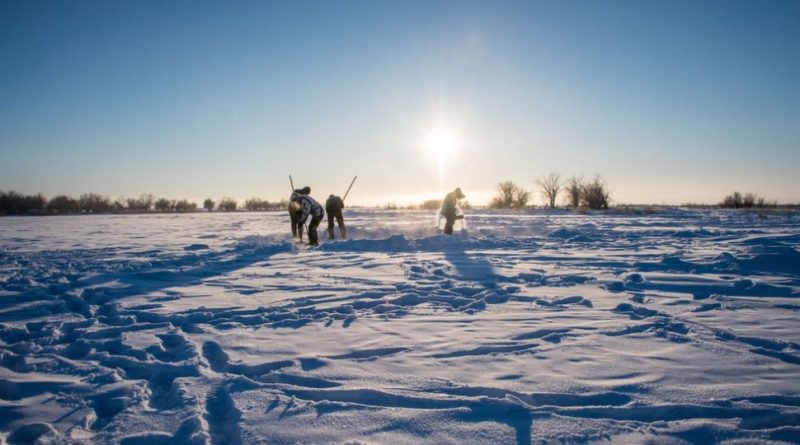Another Climate Time-Bomb Was Just Discovered in Siberia
.
Large-scale methane release is the entire ballgame. Methane’s impact on the climate is 80 times greater than that of carbon dioxide.
.

You didn’t think we were going to go an entire day without news of another environmental time-bomb, ticking away in another distant part of the world, did you? From The Guardian:
High levels of the potent greenhouse gas have been detected down to a depth of 350 metres in the Laptev Sea near Russia, prompting concern among researchers that a new climate feedback loop may have been triggered that could accelerate the pace of global heating. The slope sediments in the Arctic contain a huge quantity of frozen methane and other gases – known as hydrates. Methane has a warming effect 80 times stronger than carbon dioxide over 20 years. The United States Geological Survey has previously listed Arctic hydrate destabilisation as one of four most serious scenarios for abrupt climate change.
“At this moment, there is unlikely to be any major impact on global warming, but the point is that this process has now been triggered. This East Siberian slope methane hydrate system has been perturbed and the process will be ongoing,” said the Swedish scientist Örjan Gustafsson, of Stockholm University, in a satellite call from the vessel.
All summer long, we were treated to stories about how Siberia was turning into New Mexico. This was accompanied by wildfires that you could see from Earth’s orbit. In all of this, the threat of increased methane release was intensified and, in all of these, the climate crisis was intimately involved.
The most likely cause of the instability is an intrusion of warm Atlantic currents into the east Arctic. This “Atlantification” is driven by human-induced climate disruption. The latest discovery potentially marks the third source of methane emissions from the region. Semiletov, who has been studying this area for two decades, has previously reported the gas is being released from the shelf of the Arctic – the biggest of any sea…Temperatures in Siberia were 5C higher than average from January to June this year, an anomaly that was made at least 600 times more likely by human-caused emissions of carbon dioxide and methane. Last winter’s sea ice melted unusually early. This winter’s freeze has yet to begin, already a later start than at any time on record.
Large-scale methane release is the entire ballgame. Methane’s impact on the climate is 80 times greater than that of carbon dioxide. And while anything like that is not imminent, the process is well underway. On the electric Twitter machine on Tuesday, paleontologist John Moffitt posted a clipping from the Rodney and Otamatea Times in New Zealand in which the readers were warned that burning coal would “tend to make the air a more effective blanket for the Earth and to raise its temperature.”
The clipping was from 1912.
This story originally appeared on Esquire.com. Minor edits have been made by the Esquiremag.ph editors.

Ads by:
Memento Maxima Digital Marketing
@[email protected]
SPACE RESERVE FOR ADVERTISEMENT










